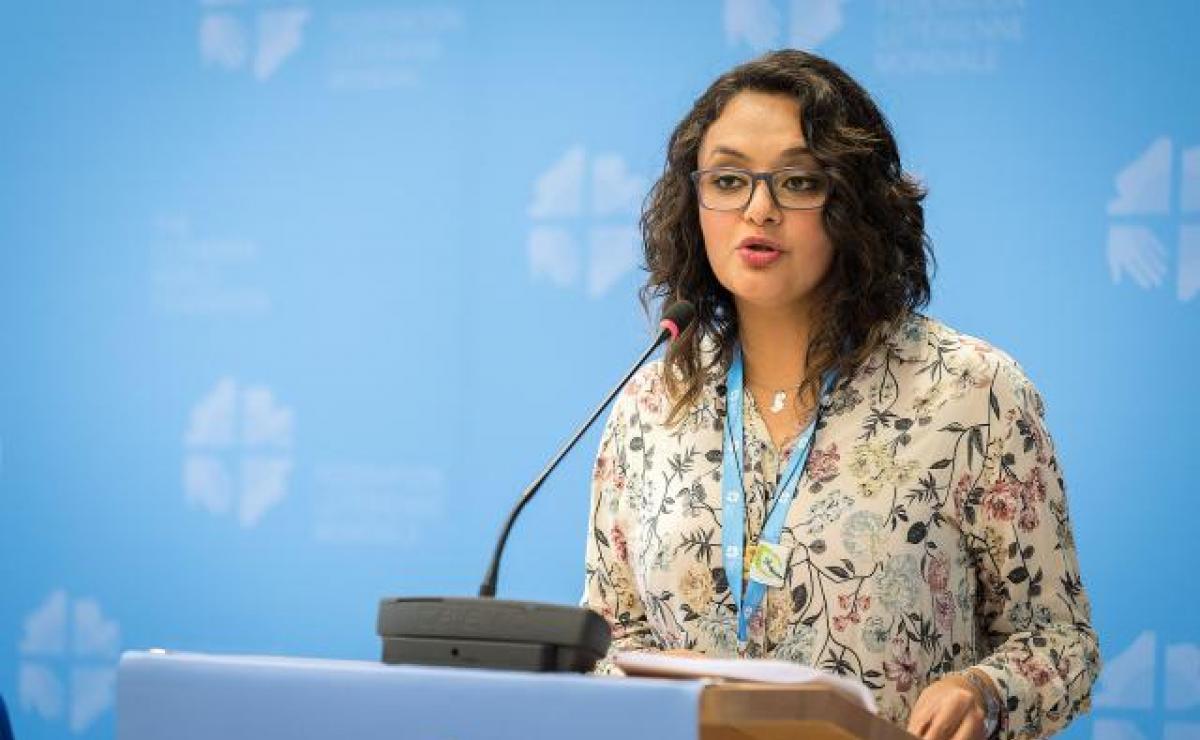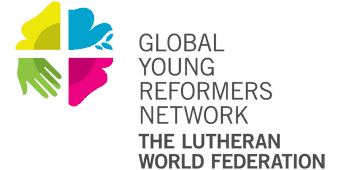“I belong to a church where women work with equal rights”

Voices from the Communion: LWF Council member Rev. Karla Steilmann Franco, Evangelical Church of the River Plate (Argentina, Paraguay and Uruguay)
(LWI) - What are the greatest challenges your church faces today?
The Evangelical Church of the River Plate (IERP) is present in three countries: Argentina, Paraguay and Uruguay, all of which have different economic, social and cultural realities. In each of these countries we have projects and diaconal activities that were created to both help and accompany the people of those countries. In this way, many of our congregations began with the fervent desire to be able to help, raise awareness and accompany people and their social realities.
With the passing of time some diaconal activities have naturally changed their structure and profile not least because the times have changed: needs are no longer the same nor is the approach. With this I want to mention what is possibly one of our greatest challenges today: to be able to maintain, restructure and even rethink the way we carry out projects and diaconal work, and how we can respond to new challenges that constantly appear. This is further complicated by the political, social or economic instability our countries experience. This reality haunts us and does not allow us to predictably plan and organize, nor does it allow us to have the necessary time to develop strategies with long-term approaches.
That is why, day-by-day in each of our projects and diaconal activities, we must be prepared to face and confront the difficulties presented to us, in addition to looking for an approach that allows us to offer not only material support but also spiritual support. This challenge is daily and constant.
What is the role of the state and communities in carrying out church activities?
The projects of the IERP are not financed or supported by the state as a whole in any of the countries but it should be noted that some activities receive state support to varying degrees, which helps us deepen and focus specific activities and train our collaborators.
I do not want to refrain from saying that from the beginning, projects and diaconal activities were financed by private means, through international organizations and sister churches in Europe. That is still the case, perhaps to a lesser degree, but we continue to receive help from our brothers and sisters to be able to carry out those activities we believe are necessary and valuable.
Last but not least, it is worth mentioning all the people who help formally and informally, often without remuneration, to carry out daily tasks that are essential for the continuity of diaconal work.
As a young woman how do you see gender justice and women's participation in your church?
It is with great excitement and pride that I am able to say that I am the pastor who was most recently ordained in my church. I am also very proud to be able to say that there are many ordained women who have been working for this church for more than 30 years. Certainly at the beginning it was not easy and they faced many obstacles and challenges that have since allowed younger generations to work with more autonomy.
Many spaces have been won and goals achieved, with much struggle and dedication on the part of the first women who dreamed of being pastors of our church. But even today there is much to fight for and much to achieve. Every day we still face the need to fight for our space and reaffirm our positions and rights. It is true, we have the same rights and obligations as male pastors but we live in a predominantly Catholic and largely conservative society, so on more than one occasion it has been necessary to clarify that women in the IERP, and other churches in the reformed tradition, are also pastors and on a par with their male counterparts.
A clear example is the fact that we have to clarify more than once that the "pastor" is not necessarily the pastor's wife but that she is a woman who occupies that role in her own right as a result of her own effort and training. From my own experience I can say that on many occasions I have had to clarify that I am the pastor and that my husband has another profession.
I would also like to point out that within the IERP we have been able to discuss the issue of gender justice, as well as that of gender diversity. That is very hopeful since enriching spaces have been opened within the same church and we can slowly overcome different barriers.
Certainly there is still a long way to go, many struggles to win and many spaces to conquer both in the field of the church and in the social sphere but I am grateful to be able to say that I work and belong to a church where dialogue is possible and where, as women, we can work autonomously and with equal rights.
During the LWF Council meeting you approved the new LWF strategy. Which parts of the strategy will be especially relevant or interesting for your church?
As a youth delegate to the Council, I would like to emphasize that, personally, I believe one of the strengths of our future work is the continuity of support for youth work, both locally and in the Global Young Reformers’ Network. The strategy calls upon churches to ensure the meaningful participation of youth in church and society.
Youth work is extremely important within the churches, regardless of their size, because in those spaces communities and bonds are formed that allow us without doubt to carry out our mission as churches in the world.
In this sense I want to highlight the importance that has been given to the inclusion and participation of young people in youth activities regionally. It has allowed many young LWF people to travel, participate and learn about the activities of other churches in the region.
In the IERP we have had the privilege of being able to host, in our youth camp (the IERPino), delegates from different churches in the region and I can assure you that the experience was unique because it allowed us to see each other and learn together, respecting diversity. That is essential to keep our youth network alive and active.
Youth work is extremely important within the churches, regardless of their size, because in those spaces communities and bonds are formed that allow us without doubt to carry out our mission as churches in the world. We should continue "reforming" our churches, because young people are not only the future of the church but also the present.
The Lutheran World Federation is a global body that shares the work and love of Christ in the world. In this series, we profile church leaders and staff as they discuss topical issues and set out ideas for building peace and justice in the world, ensuring the churches and communion grow in witness and strength.
